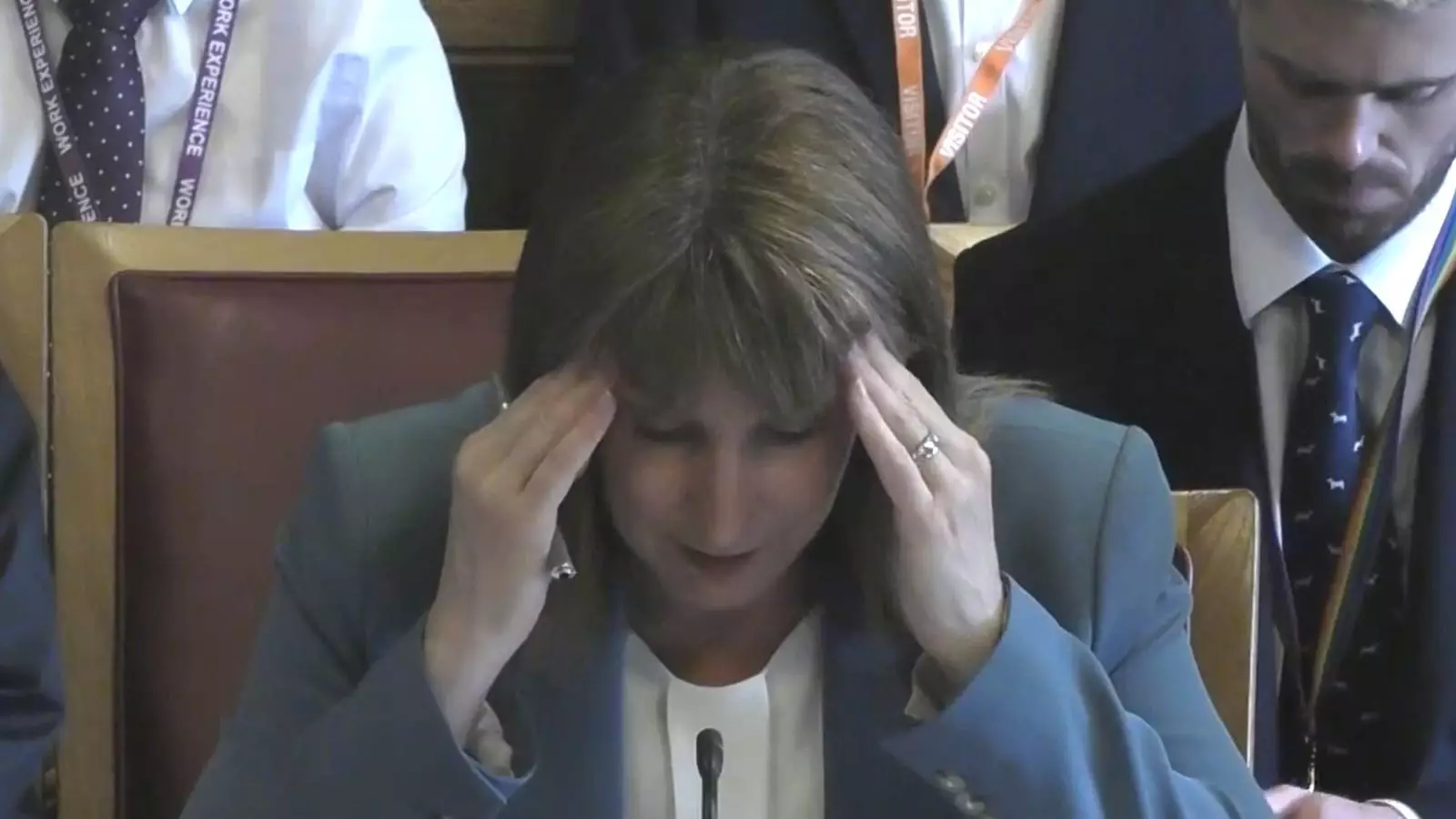Recent economic forecasts cast a long shadow over the UK’s fiscal stability, highlighting a troubling reality: the government faces an astronomical challenge of raising over £40 billion to meet its own fiscal rules by 2029-30. Such a gap is not merely a technical budget shortfall; it signals a deeper crisis of economic management and political will. The National Institute of Economic and Social Research (NIESR) paints a stark picture, suggesting that without substantial tax hikes or spending reforms, the government’s fiscal integrity could be severely compromised.
This predicament underscores a dangerous flaw—an apparent disconnect between ambition and capacity. Policymakers continue to pledge adherence to stringent fiscal rules that demand balanced day-to-day budgets, yet the economic environment is deteriorating, not improving. The shortfall blamed on tepid economic growth, higher-than-expected borrowing, and a reversal of welfare savings reveals an economy caught in a web of its own making. It is symptomatic of a government caught between austerity and expansion, unable to reconcile its promises with financial reality.
The Myth of Austerity and the Call for Moderate Tax Reforms
NIESR’s open call for more moderate, sustained tax increases reveals an uncomfortable truth: the existing approach to fiscal management is insufficient. The institute advocates for reforms, such as adjusting council tax bands or replacing the entire system with a land value tax, which not only reflect innovation but acknowledge the impossibility of relying solely on traditional revenue streams. These suggestions aim to broaden the tax base without resorting to populist measures, emphasizing fairness and long-term sustainability.
However, the idea of increased taxation remains politically thorny. The government’s reluctance to raise taxes risks undermining confidence in its fiscal discipline, especially when bond markets are already jittery. Yet, the alternative—continued borrowing and austerity—feeds into a vicious cycle that stifles growth and fuels inequality. If Britain wishes to avoid spiraling into debt, it must confront the reality that fiscal prudence entails uncomfortable choices, including a fairer distribution and revenue growth strategies.
The Paradox of Economic Sluggishness and Persistent Inflation
Adding complexity to the equation is the sluggish economic recovery. Growth forecasts of around 1.2% to 1.3% over the next two years are hardly robust, placing the UK in a middling position among G7 nations. The stagnation hampers efforts to generate revenue and exacerbates the debt dilemma. Meanwhile, inflation stubbornly persists, driven by higher wages and government spending. The prediction that inflation will hover around 3% to 3.5% threatens to erode living standards, disproportionately impacting the most vulnerable.
The Bank of England’s timeline for rate cuts is a gamble that may backfire if inflation remains entrenched. Lower interest rates could stimulate growth but risk further inflationary pressures, especially when living standards are already declining. For the poorest households, who are 10% worse off than before the pandemic, this is not just a statistic but a reflection of deeper economic malaise—a society where the fruits of recovery hardly trickle down.
Center-Left Solutions: Striking a Balance Between Growth and Equality
From a center-wing liberal perspective, the path forward must be navigated with prudence and compassion. The government’s dilemma is not merely about balancing books but ensuring social cohesion and sustainable growth. Increasing taxes on the wealthiest or reforming property taxes may be politically sensitive, but these are necessary steps to fund vital public services and reduce economic inequality. Cutting welfare, in contrast, risks deepening societal divisions and undermining social mobility.
Investments in reducing economic inactivity—such as targeted training, better job programs, and support for marginalized groups—are strategic measures that can curb welfare spending sustainably. These initiatives not only help balance the books in the long run but also foster a fairer and more resilient economy. The UK’s leadership must recognize that fiscal discipline without social investment is superficial; a truly sustainable economy depends on a delicate balance between responsible revenue policies and inclusive growth.
Ultimately, Britain stands at a crossroads: continue with half-measures that jeopardize future stability or embrace bold reforms rooted in fairness, innovation, and strategic growth. The choices made today will determine whether the nation can rise above its fiscal challenges or be crippled by them.


Leave a Reply